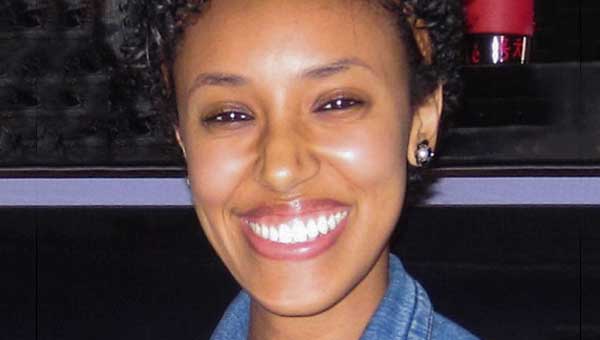
Zena Yusuf, Black AIDS Institute program coordinator: ‘I saw poverty and disparities’
Some children grow up dreaming of becoming a doctor or a journalist, but public health work chose Zena Yusuf, the Black AIDS Institute’s new program coordinator.
In addition to having a shunned uncle who, according to family gossip, likely died of AIDS during the 1980s, while she was in graduate school at Drexel University in Philadelphia, Yusuf was surrounded by people in need of better health care and sexual education. She also did her “practicum in Clarke County, Georgia, one of the five poorest counties in the nation,” she says. “I saw a really big contrast between university life and everyone living outside of it. Across the street from my dorm, there was a housing project; I saw a lot of poverty and disparities.”
Yusuf worked with the local health department and the Red Cross as an HIV educator. “I would go out in the community and talk about HIV and how it’s transmitted,” she says. “I guess that’s when I saw that there was a lot of work to be done, and I’ve been working in sexual health since then.” Yusuf has also worked at Mercy Care, Atlanta’s only National Health Care for the Homeless Council program, where she became an HIV data analyst.
As a program coordinator for the Black AIDS Institute, Yusuf provides technical-assistance in the form of HIV knowledge and program-planning logistics to help the Black Treatment Advocates Network mobilize local communities across the country. She also helps build the capacity of communities committed to expanding Black engagement in HIV treatment and prevention.
“My work covers Oakland, [Calif.], Atlanta, parts of Louisiana and Mississippi,” says Yusuf, whose own family hails from Ethiopia. “Each area has different challenges. My goal is to figure out how I can better address their unique training needs while helping to implement each program’s projects. Right now, for instance, I’m working on a PrEP learning collaborative in Atlanta, looking at what we want to do to bridge knowledge gaps. There’s a training in July—a two-day workshop designed to assist each organization involved in delivering PrEP. Georgia didn’t expand Medicaid, so resources are limited.”
Yusuf is also working with Children’s Hospital Los Angeles. “They’d like their providers to be more culturally competent; there’s a gap in what the providers know about the patients and clients they interact with,” Yusef says. “We’re creating a survey to get a sense of their knowledge levels so we can do more training. The results will be presented for National Youth HIV & AIDS Awareness Day next April.”
Ultimately, Yusuf wants to help Black people learn to talk about sex and sexuality without any shame. “Just creating that environment and atmosphere where people are comfortable even talking about their sexual encounters and experiences related to their sex lives—that’s important to me,” she says.
Tomika Anderson is a freelance writer whose work has appeared in Essence, POZ, Real Health and Ebony magazines, among others.
